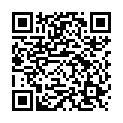|
|
|
| Module code: MAM-7.4 |
|
3V (3 hours per week) |
|
4 |
| Semester: 7 |
| Mandatory course: yes |
Language of instruction:
German |
Assessment:
Written exam
[updated 12.09.2004]
|
MAM-7.4 Engineering and Management, Master, ASPO 01.10.2004
, semester 7, mandatory course
|
45 class hours (= 33.75 clock hours) over a 15-week period.
The total student study time is 120 hours (equivalent to 4 ECTS credits).
There are therefore 86.25 hours available for class preparation and follow-up work and exam preparation.
|
Recommended prerequisites (modules):
None.
|
Recommended knowledge:
(Phase I studies in mech. eng., bachelorís degree)
[updated 14.08.2012]
|
Recommended as prerequisite for:
|
Module coordinator:
Prof. Dr.-Ing. Wolfram Seibert |
Lecturer: Prof. Dr.-Ing. Wolfram Seibert
[updated 06.09.2004]
|
Learning outcomes:
After completing this course, students will have acquired a basic overview of the construction and performance characteristics of state-of-the-art drive motors, torque converters, couplings and clutches, differential gearings and wheel drives. They will be able to design a complete drive train with all its components to meet a set of technical specifications and to dimension and configure the assembly to meet drive performance and fuel consumption needs. Students who have completed this course will be in a position to take on responsibility for developing and designing traction drives.
[updated 12.09.2004]
|
Module content:
1. Description and computation of running resistance in different vehicles
2.1. Characteristics of combustion engines and electric motors
2.2. Design and construction of energy accumulators
3. Design, construction and function of mechanical and fluid coupling mechanisms, typical torque converters and their transmission ratios, differential drives including electronically controlled systems, power transmission elements between the drive and the wheels
4. Design of drive modules for various technical requirements using a variety of specification-compliant components.
5. Calculation and simulation of performance and fuel consumption of different drive modules under defined operational conditions
6. Sample calculations of primary energy consumption to facilitate comparison of different drive systems using different fuels
[updated 12.09.2004]
|
Teaching methods/Media:
Cloze worksheets with pictures and diagrams
Interactive performance simulation program
[updated 12.09.2004]
|
Recommended or required reading:
Bosch: Kraftfahrtechnisches Taschenbuch
Hans-Hermann Braess/Ulrich Seifert: Vieweg Handbuch Kraftfahrzeugtechnik
[updated 12.09.2004]
|


